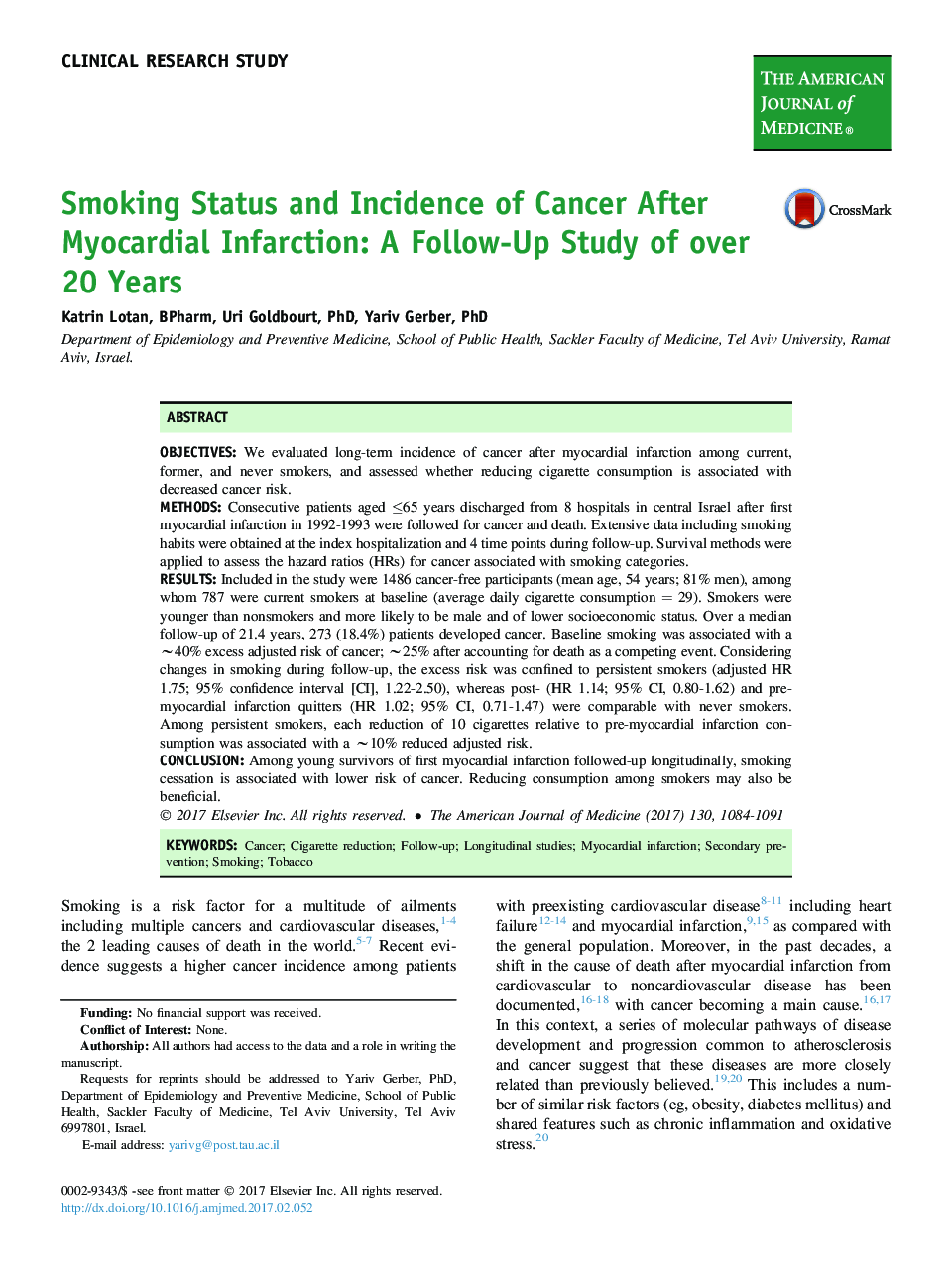| کد مقاله | کد نشریه | سال انتشار | مقاله انگلیسی | نسخه تمام متن |
|---|---|---|---|---|
| 5576846 | 1566092 | 2017 | 8 صفحه PDF | دانلود رایگان |
ObjectivesWe evaluated long-term incidence of cancer after myocardial infarction among current, former, and never smokers, and assessed whether reducing cigarette consumption is associated with decreased cancer risk.MethodsConsecutive patients aged â¤65 years discharged from 8 hospitals in central Israel after first myocardial infarction in 1992-1993 were followed for cancer and death. Extensive data including smoking habits were obtained at the index hospitalization and 4 time points during follow-up. Survival methods were applied to assess the hazard ratios (HRs) for cancer associated with smoking categories.ResultsIncluded in the study were 1486 cancer-free participants (mean age, 54 years; 81% men), among whom 787 were current smokers at baseline (average daily cigarette consumption = 29). Smokers were younger than nonsmokers and more likely to be male and of lower socioeconomic status. Over a median follow-up of 21.4 years, 273 (18.4%) patients developed cancer. Baseline smoking was associated with a â¼40% excess adjusted risk of cancer; â¼25% after accounting for death as a competing event. Considering changes in smoking during follow-up, the excess risk was confined to persistent smokers (adjusted HR 1.75; 95% confidence interval [CI], 1.22-2.50), whereas post- (HR 1.14; 95% CI, 0.80-1.62) and pre-myocardial infarction quitters (HR 1.02; 95% CI, 0.71-1.47) were comparable with never smokers. Among persistent smokers, each reduction of 10 cigarettes relative to pre-myocardial infarction consumption was associated with a â¼10% reduced adjusted risk.ConclusionAmong young survivors of first myocardial infarction followed-up longitudinally, smoking cessation is associated with lower risk of cancer. Reducing consumption among smokers may also be beneficial.
Journal: The American Journal of Medicine - Volume 130, Issue 9, September 2017, Pages 1084-1091
